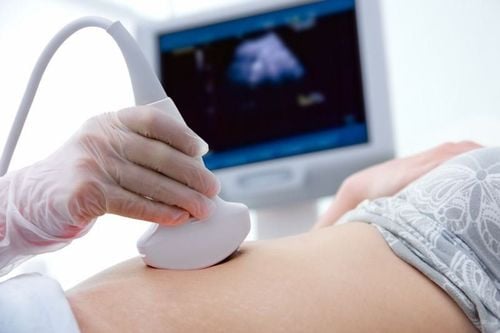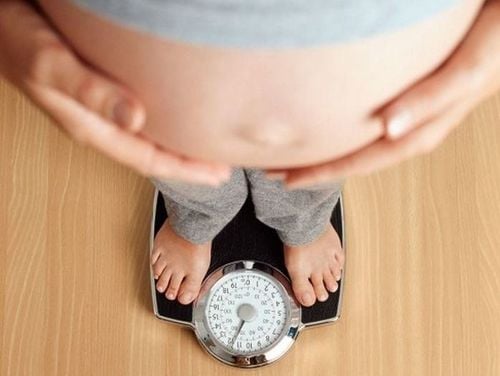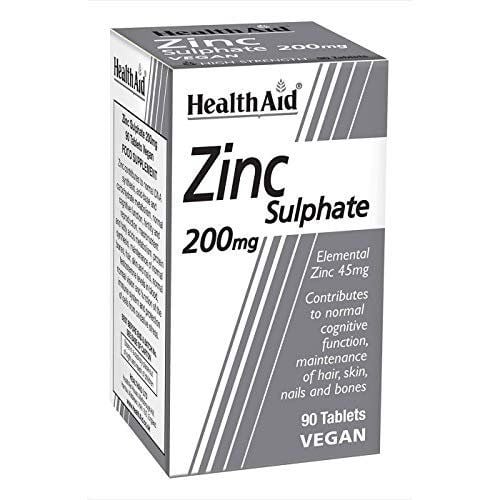This is an automatically translated article.
The article was professionally consulted by Specialist Doctor I Pham Thi Yen - Department of Obstetrics and Gynecology - Vinmec Hai Phong International General Hospital. Doctor has more than 10 years of experience in examination and treatment in the field of Obstetrics and Gynecology.A mother gaining enough weight during pregnancy will ensure a good weight gain for the fetus, complete physical and nervous system development. Conversely, if the mother is underweight, the risk of having a premature baby, low birth weight or even birth defects is increased.
Below are the national guidelines on nutrition for pregnant women issued by the Ministry of Health to help mothers gain appropriate weight.
1. Important ingredients to gain enough weight during pregnancy
Good nutrition during pregnancy and lactation is one of the decisive factors in ensuring the mother's health, the growth and development of the child. Here are the indispensable ingredients in a pregnant woman's diet, helping to provide adequate nutrients for both mother and baby:Starch: Starch is the main source of energy for the body. Pregnant women need to know how to properly add starch, consuming too much starch can increase the risk of diabetes. Pregnant women need to eat enough foods containing glucid to supplement energy and participate in the process of cell structure. Eating adequate amounts of glucide also contributes to the promotion of lipid metabolism in both mother and baby.
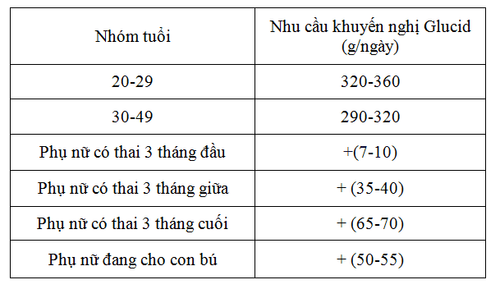
Protein needs of pregnant women increase to help build and develop the body of the fetus. Mother's diet needs a combination of animal protein and vegetable protein. Foods rich in animal protein include meat, fish, eggs, milk, shrimp, crabs, seafood... Plant-based protein supplements include soybeans, green beans, other legumes, and sesame and peanuts. .
Fat
Lipid is especially important during pregnancy and lactation, because it is a lipid that participates in the formation and development of the brain during pregnancy and ensures the quality of breast milk. Lack of lipids in the meal reduces the absorption of nutrients, affects the mother's health and stores fat for milk production after birth, affecting the baby's brain development. On the contrary, consuming too much lipid can lead to overweight, obesity, affect the development of the fetus and can cause metabolic syndrome for the mother.
According to the recommendations of the Ministry of Health, saturated fatty acids should not exceed 10% of dietary energy. Unsaturated fatty acids must provide 11-15% of energy. Therefore, it is necessary to increase the use of vegetable oils and limit the consumption of animal fats.
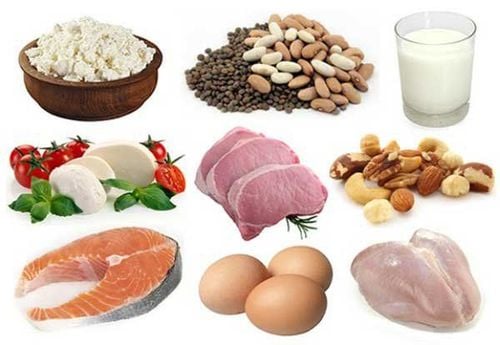
Fiber has almost no nutritional role, but it has a laxative effect, increases digestion, and is also an agent participating in the elimination of oxidation products, toxic substances in the body and reduce the risk of colon and colon cancers. For pregnant women, fiber helps relieve constipation, ease pregnancy symptoms, and improve appetite. Fiber is abundant in vegetables, fruits, grains,...
Vitamins and minerals: Vitamins and minerals such as calcium, iron, folic acid, vitamin A, vitamin D, vitamin B1, vitamin B2, ... are important factors for fetal development. Lack of certain essential vitamins and minerals not only affects the nutrition of the fetus, but also causes serious defects. During pregnancy, pregnant women should pay attention to supplementing with necessary vitamins and minerals through meals and taking additional oral supplements as directed by a specialist.
Milk: Pregnant women should drink 2-3 glasses of fresh milk/day after each main meal. It is necessary to choose sugar-free milk to prevent the risk of gestational diabetes.
Water: Pregnant women are very prone to constipation because they need to drink 2.5-3 liters of water every day to avoid the risk of constipation.
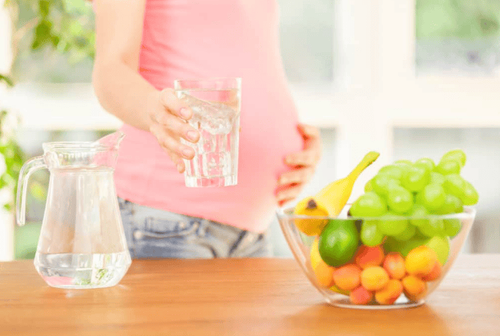
2. Diet for pregnant women in each stage
2.1 Nutrition in the first trimester of pregnancy: The first trimester of pregnancy is a period when it is necessary to eat foods rich in protein. At this stage, the mother is often pregnant, so she can divide her meals to limit vomiting. In addition, in the first 3 months, mothers need to supplement iron and folic acid with other vitamins and trace elements exactly as directed by a specialist.2.2 Nutrition in the second trimester: During this period, the fetus develops very quickly, so the mother's nutritional needs must also increase. According to the recommendations of the Institute of Nutrition - Ministry of Health in 2016, the diet should be more so that the energy supply increases by 250 kcal/day (equivalent to 1 bowl of rice and reasonable food). The fetal skeleton in this period develops rapidly, so the mother needs to increase foods rich in calcium and zinc such as shrimp, crab, eggs, milk, etc. In addition, pregnant women must continue to take supplements. Take iron and folic acid supplements as recommended.
2.3 Nutrition in the last 3 months of pregnancy The last 3 months of pregnancy is the period when the baby's weight is growing fastest, so the mother's nutrition needs to be adequate and varied to meet the needs. of the fetus. According to the recommendations of the Institute of Nutrition, the energy level in the last 3 months of pregnancy needs to increase by 450 kcal/day (equivalent to 2 bowls of rice and reasonable food). In addition to rice, a pregnant mother's meal in the last month should add protein and fat because these are important ingredients to help the baby gain weight.
Trắc nghiệm: Khi thai nhi 32 tuần, mẹ cần chú ý gì?
Khi bước vào tuần thứ 32 của thai kỳ, thai nhi sẽ có bước phát triển vượt trội và dẫn đến những thay đổi về mọi mặt trong cơ thể mẹ. Vậy hãy cùng tìm hiểu xem khi thai 32 tuần chúng ta cần lưu ý những gì qua bài trắc nghiệm sau đây nhé.3. Some other notes to help pregnant women gain weight reasonably
Should not be excessively abstinent, it is necessary to build a varied and nutritious diet, especially adding a lot of vegetables, fruits and necessary vitamins and minerals. Avoid stimulant foods such as alcohol, coffee, tobacco, hot spicy spices such as chili, pepper, garlic, vinegar Use foods of clear origin, ensure hygiene and safety. Whole foods Should rest, relax, do not work too hard, just do it gently and moderately. The last months of pregnancy need more rest to help your baby gain weight because this is the period when the baby gains weight the fastest. Keep your mind at ease, avoid anxiety and stress. Keep a clean living environment, limit exposure to dust and tobacco. Go for regular antenatal check-ups at medical facilities. Complete vaccinations to ensure the health of both mother and baby. At Vinmec International General Hospital, there is a package maternity service as a solution to help pregnant women feel secure because of the companionship of the medical team throughout the pregnancy.When choosing Maternity Package, pregnant women can: The pregnancy process is monitored by a team of qualified doctors Regular check-ups, early detection of abnormal problems The package pregnancy helps to facilitate the pregnancy process. Birth program Newborns receive comprehensive care To register for examination and treatment at Vinmec International General Hospital, you can contact Vinmec Health System nationwide
Please dial HOTLINE for more information or register for an appointment HERE. Download MyVinmec app to make appointments faster and to manage your bookings easily.
Reference source: National Institute of Nutrition







